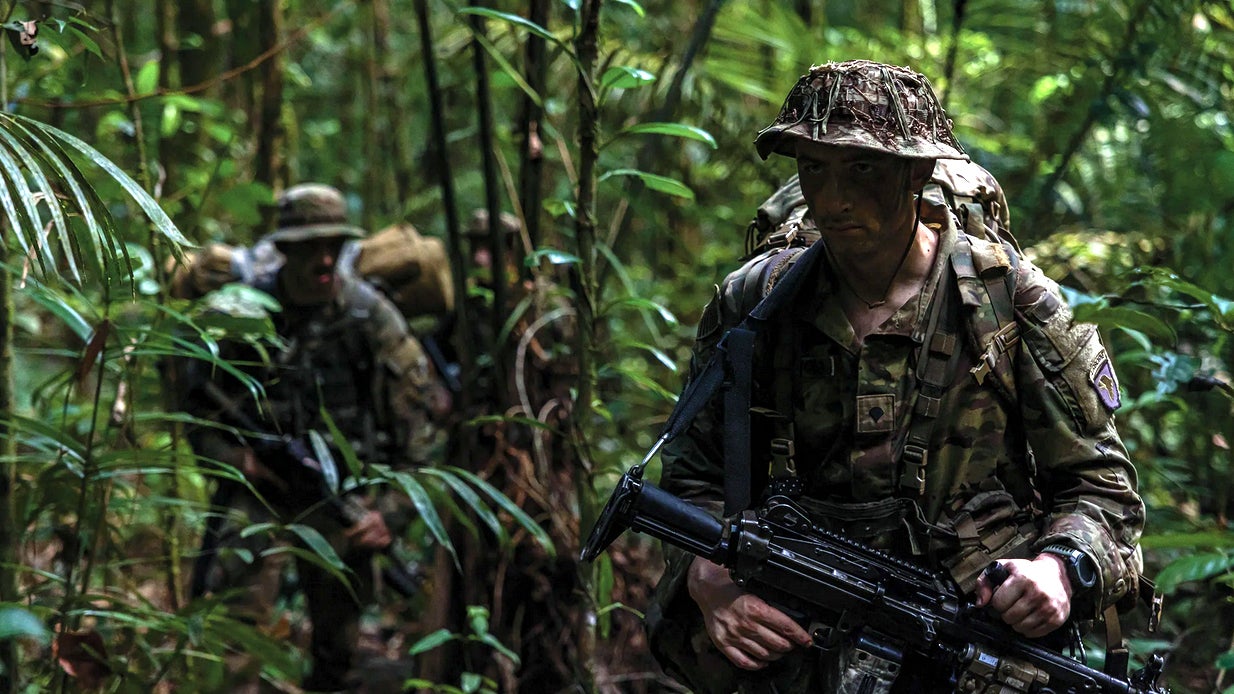Paper: Soldiers Must Prepare for Jungle Warfare
Paper: Soldiers Must Prepare for Jungle Warfare

Facing a future in the Indo-Pacific, the Army should ensure its soldiers can adapt to and overcome the “relentless challenges” of jungle warfare, according to the author of a new paper published by the Association of the U.S. Army.
“Only through active experimentation and trial by fire did … the U.S. and Australian armies during World War II make strides in recognizing the unique impacts the jungle environment had on the tactical and operational levels of war,” writes Maj. Karl Rauch. “These lessons must be considered as the contemporary U.S. Army trains and prepares for contingency operations across the Pacific in the coming century.”
In “Welcome (Back) to the Jungle,” Rauch, a student at the School of Advanced Military Studies and a recent graduate of the Command and General Staff College at Fort Leavenworth, Kansas, analyzes historic lessons in jungle warfare and applies them to the future fight.
The paper is available here.
Though there are several types of jungles, sound, light and disease unite them all, Rauch writes.
“The tropical rainforest, specifically the jungle, is unlike anything else on earth,” Rauch writes. “Armies in conflict within the jungle must adapt to extreme weather, the high risk of disease, confined physical space and countless forms of flora and fauna.”
During the New Guinea Campaign of World War II, Lt. Gen. Robert Eichelberger led the 32nd Infantry Division as it worked to capture the village of Buna. Despite the challenges of jungle warfare, his approach enabled the first U.S. ground battle victory of the war.
“Beyond anything the Americans had experienced in their history, those jungles took advantage of their lack of regional knowledge and experience,” Rauch writes. “Eichelberger did the only thing he could without properly trained jungle Soldiers: He demonstrated visible leadership. He walked for hours in knee-deep water from one flank to the other, led small units against Japanese bunkers and openly wore glossed rank on his uniform on the front lines.”
When it comes to anticipating where the next major conflict will happen, “wars have the habit of taking place where they are unexpected,” and “militaries cannot afford to forego preparation in unique environments simply because planners and thinkers do not anticipate significant conflict to occur in those environments,” Rauch warns.
Lessons learned during the New Guinea Campaign could apply to future battles, Rauch writes.
“A study of New Guinea demonstrates that large-scale combat in this region inevitably boils down to land forces competing to control key terrain,” he writes. “Despite how drastically yesterday’s Pacific battlefields have changed over the past 80 years, the foundations of jungle fighting will become the link between yesterday’s lessons and tomorrow’s conflicts.”

